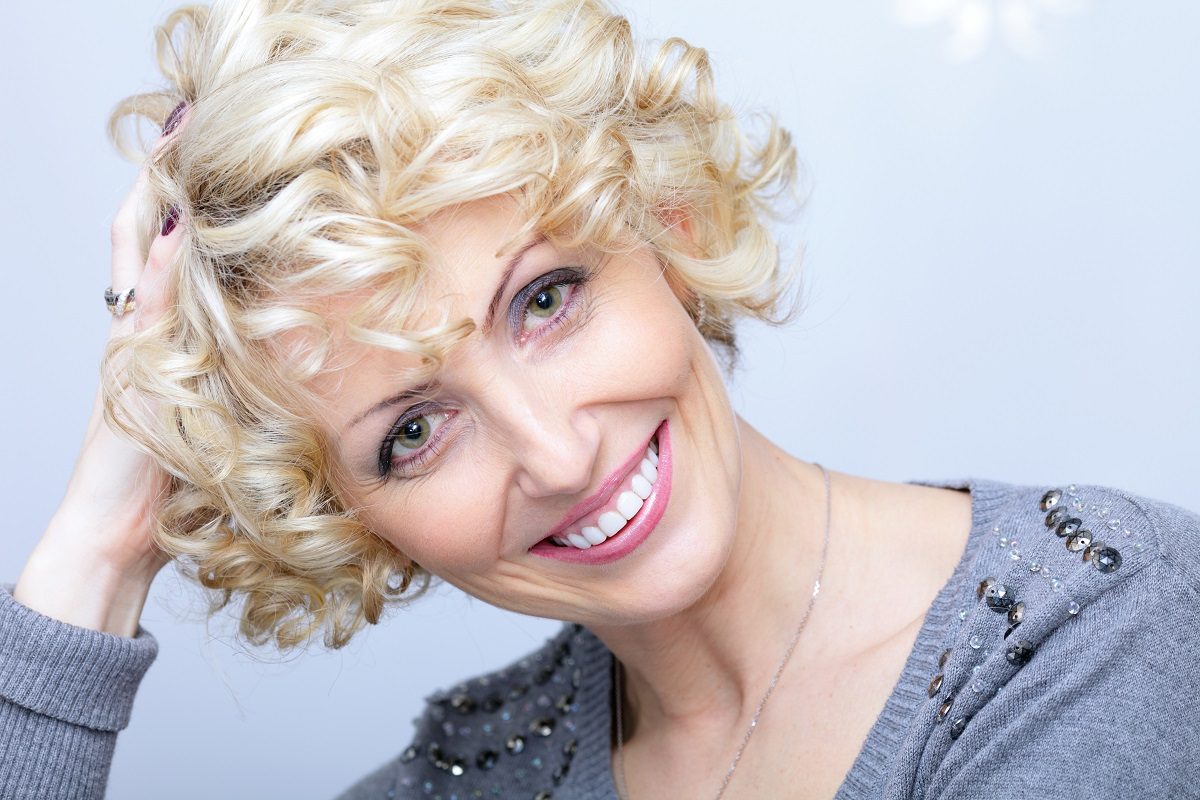Hair thickening tips: Do you ever look at someone else’s hair and think, “How on earth does she do it?” You’re around the same age (presumably), you’re both embracing the gray, or maybe you’re both coloring your grays, but for whatever reason her hair appears to be thicker and fuller than you can even dream of getting yours to be. Not anymore. While she may be naturally blessed with thick hair, even after 40, there are a few ways we can beat Mother Nature at her own game, and have full, beautiful locks no matter what stage of life our hair is in.
Table of Contents
Scalp care
It may seem somewhat surprising, but keeping your scalp clean and healthy can be one of the best things you can do to combat thinning hair. Dirt, sweat, and free radicals can find their home on your scalp. This can happen in spite of how often you clean your hair and how hard you scrub, even if you are using a perfectly good shampoo to wash your hair. Side note: scrubbing your head harder while washing is not a viable solution.
However, there are cleansers specifically formulated to clean away any buildup, and prevent more from forming. When your scalp is healthy, the follicles, or the tiny spot each hair grows from, are able to flourish. This scalp cleanser from Better Not Younger is an absolute game changer. With natural ingredients like activated charcoal and birch extract, you won’t believe how good it feels and how clean your head will be.
Steer clear of ammonia
Dying your hair can be extremely tempting, especially when your strands start the process of turning gray. And whether or not you choose to give in to that temptation is completely up to you, but if you do, there are a few things you may want to take into consideration before you start plopping dye on your head.
Specifically, avoid dyes containing ammonia. In all honesty, ammonia works incredibly well in hair dye as it penetrates the strand to deposit color, allowing it to really take. However, the ammonia also damages the cuticle, ultimately destroying your hair’s integrity, leaving it brittle. Ammonia-free dyes won’t last as long, but your hair will thank you in the long run.
Styling- gentle and less heat to avoid breakage
One of the most common mistakes I hear about is women over styling their hair. This could be excessive brushing, daily heat styling, or even wearing hair in ponytails or buns too often, which pulls and can cause hair to thin at the temples. Heat styling is certainly a cruel mistress in the hair game. While it may seem necessary to apply heat to your hair to get that perfect style, blow dryers, hot irons, and curling wands can fry your strands and cause them to become weak and prone to breakage. However, you should also be wary of towel drying. Whatever you do, do not rub your wet hair with the towel. Dabbing and scrunching are alright, but remember to be gentle and allow your hair to air dry whenever possible.
Another way to avoid heat is to reduce the temperature in the shower. Bathing in warm, not hot, water is perfectly fine. I always rinse my conditioner in cooler water at the end of my shower to help close the shaft and allow my hair to hold in as much moisture as it can.
Essential oils truly are essential
Not to be confused with mineral oils, which are atrocious, essential oils can aid in hydrating your strands and scalp, growing hair, and, you guessed it, thickening your strands. Lavender is known to have properties that assist cells in growth, which is exactly what your hair needs to grow long and strong. Peppermint is known to increase circulation, which pulls blood and oxygen to your scalp to help your hair grow.
As I mentioned earlier, buildup on your scalp blocks new growth, and dandruff is definitely one of those things. Thankfully, lemongrass oil can help to reduce dandruff. Thyme, tea tree, cedarwood, and rosemary are all great for thickening as well. Look for shampoos and conditioners with these oils, instead of synthetic fragrances to prevent undue damage, and massage your scalp while washing to help your hair grow stronger and stronger.
Balancing Hormones
Finally, imbalanced hormones could be the culprit, and while you can’t change your genetics, you can fight them. You can try balancing your diet by making sure you’re getting plenty of vitamins and nutrients like omega-3, antioxidants, vitamins A, C, and D, folic acid and protein. Foods like fatty fish, nuts, berries, legumes, fresh fruits and vegetables are all packed with these. If you think your hair loss may be due to hormonal imbalance, try changing up your diet along with the other tips above to put up your best fight against thinning hair.
Have other tips that have worked for you? We would love to hear about them. Drop us a line in the comments below!

